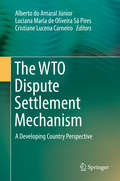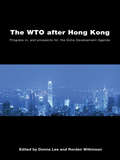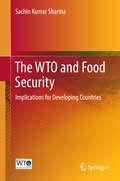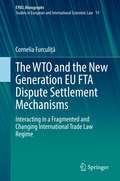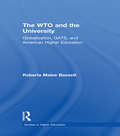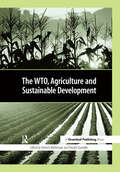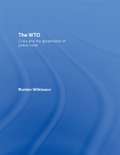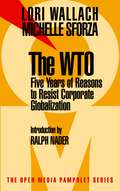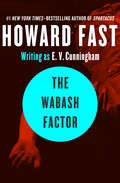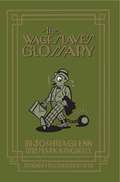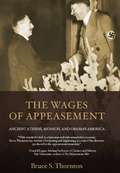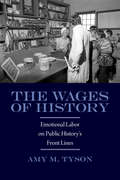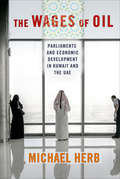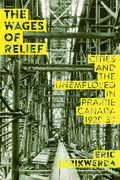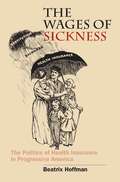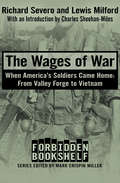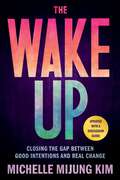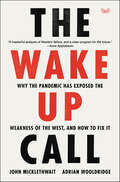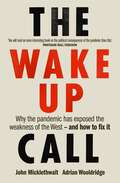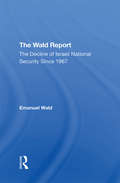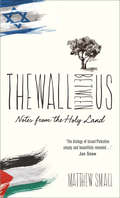- Table View
- List View
The WTO Dispute Settlement Mechanism: A Developing Country Perspective
by Alberto do Amaral Júnior Luciana Maria de Oliveira Sá Pires Cristiane Lucena CarneiroThis book offers a multidisciplinary approach to the Dispute Settlement Mechanism (DSM) by bringing together contributions from legal scholars and political scientists. Most of the authors belong to a tightly knit legal epistemic community, trained at the University of São Paulo and at the top-ranked research and policy centers on WTO law in Europe.Presenting a novel and unique perspective on the DSM, it provides an analysis of current themes at the heart of the WTO Dispute Settlement Mechanism through the lenses of scholars with a “developing country” perspective.Focusing on assessment, substance, and process, it presents a three-fold approach to the analysis and offers a singular contribution to the scholarly literature on the WTO. The book discusses the topic from the viewpoint of individuals deeply involved in the scholarly production as well as the daily operation of the mechanism. The contributors include academics in the fields of international economic law and political science, diplomats, individuals engaged in legal private practice, and individuals affiliated with the WTO as well as WTO-related think tanks. The result is a balanced perspective on pressing issues that have arisen and that are likely to remain at the center of the scholarly and policy debate for years to come.
The WTO Regime on Government Procurement: Challenge and Reform
by Sue Arrowsmith Robert D. AndersonOriginally an important but relatively obscure plurilateral instrument, the WTO Agreement on Government Procurement (GPA) is now becoming a pillar of the WTO system as a result of important developments since the Uruguay Round. This collection examines the issues and challenges that this raises for the GPA, as well as future prospects for addressing government procurement at a multilateral level. Coverage includes issues relating to pending accessions to the GPA, particularly those of developing countries with a large state sector such as China; the revised (provisionally agreed) GPA text of 2006, including provisions on electronic procurement and Special and Differential Treatment for Developing Countries; and procurement provisions in regional trade agreements and their significance for the multilateral system. Attention is also given to emerging issues, especially those concerning environmental, social and SME policy; competition law; and the implications of the recent economic crisis.
The WTO after Hong Kong: Progress in, and Prospects for, the Doha Development Agenda
by Rorden Wilkinson Donna LeeAfter the World Trade Organization’s (WTO) critical December 2005 Hong Kong ministerial meeting, negotiations to implement the Doha Development Agenda (DDA) broke down completely in the summer of 2006. This book offers a detailed and critical evaluation of how and why the negotiations arrived at this point and what the future holds for the WTO. It brings together leading scholars in the field of trade from across the social sciences who address the key issues at stake, the principal players in the negotiations, the role of fairness and legitimacy in the Doha Round, and the prospects for the DDA’s conclusion. The WTO after Hong Kong is the most comprehensive account of the current state of the World Trade Organization and will be of enormous interest to students of trade politics, international organizations, development and international political economy.
The WTO and Food Security
by Sachin Kumar SharmaThis book examines the public stockholding policies of selected developing countries from the perspective of WTO rules and assesses whether the provisions of the Agreement on Agriculture (AoA) could hamper these countries' efforts to address the challenges of food security. Further, it highlights the need to amend the provisions of the AoA to make WTO rules just and fair for the millions of people suffering from hunger and malnutrition in developing countries. This book highlights that 12 countries namely China, Egypt, India, Indonesia, Jordan, Kenya, Morocco, Pakistan, Tunisia, Turkey, Zambia and Zimbabwe are facing or will face problems in implementing the food security policies due to the provisions under AoA. These provisions need to be amended for permitting developing countries to address hunger and undernourishment. Progress in WTO negotiations on public stockholding for food security purposes are also discussed and analysed. The findings of this study greatly benefit trade negotiators, policymakers, civil society, farmers groups, researchers, students and academics interested in issues related to the WTO, agriculture and food security.
The WTO and International Investment Law Converging Systems (Cambridge International Trade and Economic Law)
by Jürgen KurtzInternational law has historically regulated foreign trade and foreign investment differently. Distinct evolutionary pathways have led to variances in treaty form, institutional culture, and dispute settlement. With their inevitable erosion through the late twentieth to early twenty-first centuries, those weak boundaries have become porous and indefensible. Powerful economic, legal and sociological factors are now pushing the two systems together. In this book, Jürgen Kurtz systematically explores the often complex and little-understood dynamics of this convergence phenomenon. Kurtz addresses the growing connections between international trade and investment law, proposing a theoretically grounded and doctrinally tractable framework to understand the deepening relationship between them. The book also offers reform ideas and possibilities, providing treaty negotiators and other government officials with a set of theoretical insights and doctrinal models that can guide actors in building a justifiable and sustainable level of commonality between the two legal systems. Proposes a new understanding of the relationship between international trade and investment law Offers theoretical justifications for levels of convergence between the two regimes and expands the potential readership base beyond law to other disciplinary areas Identifies vectors by which both legal regimes may achieve systemic maturation and will appeal to treaty negotiators and policy makers who are seeking to reform both systems
The WTO and the New Generation EU FTA Dispute Settlement Mechanisms: Interacting in a Fragmented and Changing International Trade Law Regime (European Yearbook of International Economic Law #19)
by Cornelia FurculițăThis book explores interactions between the new generation EU FTA and the WTO dispute settlement mechanisms, adopting an innovative, comprehensive approach. It investigates how the mechanisms potentially could and actually do compete, conflict, and cooperate, focusing not only on the potential negative consequences of fragmentation, but also on how synergies could be enhanced. Thus, unlike the existing literature, which chiefly focuses on conflicting interactions, it considers positive and negative interactions alike. Moreover, the book explores the topic in light of the most recent changes in and challenges to the international trade law regime. Particular attention is paid to how the multilateral and bilateral mechanisms studied interact with regard to the current WTO dispute settlement crisis and the EU-backed multi-party interim appeal arbitration arrangement. Thus, the book provides up-to-date answers to compelling questions. It also examines in detail the new generation EU FTA dispute settlement mechanisms, an aspect which has not been the subject of thorough research to date.The book pursues an interdisciplinary approach, combining legal methodology, international relations and political science theories with interviews. Given its scope, the book will appeal to researchers and scholars whose work involves international trade law issues. However, it will also be of interest to general international law academics, as it touches upon such issues as fragmentation, forum shopping, and general rules of interpretation. Furthermore, by analysing and presenting proposals with regard to the new generation EU FTAs, it will also be pertinent to the work of EU policymakers and researchers studying EU trade law.
The WTO and the University: Globalization, GATS, and American Higher Education (Studies in Higher Education)
by Roberta Malee BassettBy and large, the debate about the merits of including higher education services within free trade policies has occurred outside of the United States, even though the U.S. Office of the Trade Representative has specifically included higher education services in its March 2003 negotiating offer to the General Agreement on Trade in Services (GATS). This book emerged from research and conversations on the potential implications of free trade on American higher education, implications which have yet to lead to any real conversation or debate within the broad higher education community in the United States. It fills a niche in the literature on trade and higher education services by providing context and analysis of the trade issue in the American higher education context, as well as the pros and cons of free trade in higher education services from the perspectives of the U.S.-based actors.
The WTO, Agriculture and Sustainable Development
by Heinrich Wohlmeyer Theodor QuendlerDespite the Doha declaration of November 2001, the failure to start a new round of global trade negotiations at Seattle in December 1999 and the hostility of protesters to the trade liberalization process and growing global economic and social disparities was a wake-up call for the World Trade Organisation (WTO). The ambitious goal of this ground-breaking book is to identify the strengths and weaknesses of liberalized world trade, in particular in the agricultural sector, and to investigate to what extent the current WTO agreements provide the necessary fail-safe devices to react to trade-related negative impacts on sustainability, environmental protection and food security. The background and interrelationship between the WTO, the tenets of sustainable development and the unique features of the agriculture and forestry sectors are explored, and conclusions regarding the deficits of the world trade system and its conflicts with basic societal goals – such as sustainability – are drawn. Agriculture and forestry have a particular affinity with what the authors call "strong sustainability" and are to be among the major agenda items in forthcoming WTO negotiations. The book proposes that sustainable agricultural production techniques such as integrated and organic farming provide a series of related services to community and environment which could be severely prejudiced by wholesale trade liberalization and the imposition of the large-scale production methods of the mega-trade giants of the USA and Europe. And yet the concept of sustainability is referred to only tangentially in the existing WTO agenda. The WTO, Agriculture and Sustainable Development argues that, without a formal recognition of this failing, the premise that free trade is inherently advantageous for all countries is a falsehood. Further, unfettered liberalization is unsustainable and a social and environmental multilateral framework must be agreed to reinterpret or adapt a host of WTO regulations that are at odds with sustainable development. The core problem is that, under the current system, import duties can only be differentiated by direct goods and services and not by their means of production – sustainable or otherwise. Therefore, a range of environmental policy measures in the agricultural sector, such as the consideration of product life-cycles, the internalization of external costs and a coupling of trade liberalization with ecological obligations are proposed by the authors. In addition, they argue that unsustainable economic short-termism must be curbed and the use of the stick of trade sanctions and the carrot of financial benefits for good environmental performance be permitted to promote sustainable agricultural practices. This book will contribute greatly in addressing the lack of basic theoretical arguments at the intersection between trade and sustainable development – a failing that has already been bemoaned by trade policy-makers. It is highly recommended reading for all those involved or interested in the WTO negotiations, whether from multilateral organizations, governments, industry or civil society.
The WTO: Crisis and the Governance of Global Trade
by Rorden WilkinsonRorden Wilkinson explores the factors behind the collapse of World Trade Organisation (WTO) ministerials – as in Seattle in 1999 and Cancun in 2003 – and asks why such events have not significantly disrupted the development of the multilateral trading system. He argues that the political conflicts played out during such meetings, their occasional collapse and the reasons why such events have so far not proven detrimental to the development of the multilateral trading system can be explained by examining the way in which the institution was created and has developed through time. In addition, this new text: explores the development of the multilateral trading system from the creation of the General Agreement on Tariffs and Trade (GATT) in 1947 to the WTO’s Hong Kong ministerial in December 2005 examines the way in which the interaction of member states has been structured by the institution’s development assesses the impact of institutional practices and procedures on the heightening of political tensions and explains why WTO ministerials exhibit a propensity to collapse but why the breakdown of a meeting has so far not prevented the institution from moving forward This book will be of interest to scholars and students of international politics, economics and law
The WTO: Five Years of Reasons to Resist Corporate Globalization (Open Media Series)
by Ralph Nader Lori Wallach Michelle SforzaIn this groundbreaking pamphlet, directors of Ralph Nader's Public Citizen group examine the first five years of the World Trade Organization's track record, demonstrating how the WTO aims to create a new global economic system that increases corporate profit with little regard for social and ecological impacts, or democratically enacted law. Wallach and Sforza make clear recommendations for altering the undemocratic course that the WTO imposes on democratic society.
The Wabash Factor
by Howard FastA rash of political deaths alerts a New York cop to an international assassination plotAt a crime scene, Harry Golding has no fear. But put him in front of a few dozen undergraduates, and he begins to sweat. He agrees to give the lecture on criminology for his brother, a New York University professor, and muddles through it, successful until it comes time for questions. A skinny young conspiracy theorist demands to know what the police are doing about the recent death of a presidential candidate. The answer is, they&’re doing nothing. The man died of a heart attack. Case closed. But when another politician drops dead, seemingly of natural causes, Golding remembers the young student&’s paranoia. As more politicians die, Harry Golding finds himself in the middle of a terrifying conspiracy that threatens his city, his family, and his life. This ebook features an illustrated biography of Howard Fast including rare photos from the author&’s estate.
The Wage Slave's Glossary
by Joshua Glenn Mark Kingwell Pseud SethWhen The Idler's Glossary was released in October 2008 the world was on the cusp of experiencing its greatest economic collapse since the Great Depression. Depending on your sense of irony, this was either foolhardy or prescient. The Wage Slave's Glossary, a second volume of anti-economic etymology, comes as we climb out of recession, and continues to explore and challenge the interconnected world of work and leisure and labor and how the language we use continues to keep us in chains.
The Wages of Appeasement
by Bruce S. ThorntonWages of Appeasement explores the reasons why a powerful state gives in to aggressors. It tells the story of three historical examples of appeasement: the greek city-states of the fourth century b.c., which lost their freedom to Philip II of Macedon; England in the twenties and thirties, and the failure to stop Germany's aggression that led to World War II; and America's current war against Islamic jihad and the 30-year failure to counter Iran's attacks on the U.S. The inherent weaknesses of democracies and their bad habit of pursuing short-term interests at the expense of long-term security play a role in appeasement. But more important are the bad ideas people indulge, from idealized views of human nature to utopian notions like pacifism or disarmament. But especially important is the notion that diplomatic engagement and international institutions like the u.n. can resolve conflict and deter an aggressor--the delusion currently driving the Obama foreign policy in the middle east. Wages of Appeasement combines narrative history and cultural analysis to show how ideas can have dangerous and deadly consequences.
The Wages of History: Emotional Labor on Public History's Front Lines
by Amy TysonAnyone who has encountered costumed workers at a living history museum may well have wondered what their jobs are like, churning butter or firing muskets while dressed in period clothing. In The Wages of History, Amy Tyson enters the world of the public history interpreters at Minnesota's Historic Fort Snelling to investigate how they understand their roles and experience their daily work. Drawing on archival research, personal interviews, and participant observation, she reframes the current discourse on history museums by analyzing interpreters as laborers within the larger service and knowledge economies. Although many who are drawn to such work initially see it as a privilege--an opportunity to connect with the public in meaningful ways through the medium of history--the realities of the job almost inevitably alter that view. Not only do interpreters make considerable sacrifices, both emotional and financial, in order to pursue their work, but their sense of special status can lead them to avoid confronting troubling conditions on the job, at times fueling tensions in the workplace. This case study also offers insights--many drawn from the author's seven years of working as an interpreter at Fort Snelling--into the way gendered roles and behaviors from the past play out among the workers, the importance of creative autonomy to historical interpreters, and the ways those on public history's front lines both resist and embrace the site's more difficult and painful histories relating to slavery and American Indian genocide.
The Wages of Oil: Parliaments and Economic Development in Kuwait and the UAE
by Michael HerbThe contrast between Kuwait and the UAE today illustrates the vastly different possible futures facing the smaller states of the Gulf. Dubai's rulers dream of creating a truly global business center, a megalopolis of many millions attracting immigrants in great waves from near and far. Kuwait, meanwhile, has the most spirited and influential parliament in any of the oil-rich Gulf monarchies. In The Wages of Oil, Michael Herb provides a robust framework for thinking about the future of the Gulf monarchies. The Gulf has seen enormous changes in recent years, and more are to come. Herb explains the nature of the changes we are likely to see in the future. He starts by asking why Kuwait is far ahead of all other Gulf monarchies in terms of political liberalization, but behind all of them in its efforts to diversify its economy away from oil. He compares Kuwait with the United Arab Emirates, which lacks Kuwait's parliament but has moved ambitiously to diversify. This data-rich book reflects the importance of both politics and economic development issues for decision-makers in the Gulf. Herb develops a political economy of the Gulf that ties together a variety of issues usually treated separately: Kuwait's National Assembly, Dubai's real estate boom, the paucity of citizen labor in the private sector, class divisions among citizens, the caste divide between citizens and noncitizens, and the politics of land.
The Wages of Relief: Cities and the Unemployed in Prairie Canada, 1929–39
by Eric StrikwerdaIn the early part of the Dirty Thirties, the Canadian prairie city was a relatively safe haven. Having faced recession before the Great War and then again in the early 1920s, municipalities already had relief apparatuses in place to deal with poverty and unemployment. Until 1933, responsibilty for the care of the urban poor remained with local governments, but when the farms failed that year, and the Depression deepened, western Canadian cities suffered tremendously. Recognizing the severity of the crisis, the national government intervened. Evolving federal programs and policies took over responsibility for the delivery of relief to the single unemployed, while the government simultaneously withdrew financing for all public works projects. Setting municipal relief administrations of the 1930s within a wider literature on welfare and urban poor relief, Strikwerda highlights the legacy on which relief policymakers relied in determining policy directions, as well as the experiences of the individuals and families who depended on relief for their survival. Focusing on three prairie cities—Edmonton, Saskatoon, and Winnipeg—Strikwerda argues that municipal officials used their power to set policy to address what they perceived to be the most serious threats to the social order stemming from the economic crisis. By analyzing the differing ways in which local relief programs treated married and single men, he also explores important gendered dynamics at work in the response of city administrators to the social and economic upheaval of the Depression. Probing the mindset of local elites struggling in extraordinary circumstances, The Wages of Relief describes the enduring impact of the policy changes made in the 1930s in the direction of a broad, national approach to unemployment—an approach that ushered in Canada’s modern welfare system.
The Wages of Sickness
by Beatrix HoffmanThe Clinton administration's failed health care reform was not the first attempt to establish government-sponsored medical coverage in the United States. From 1915 to 1920, Progressive reformers led a spirited but ultimately unsuccessful crusade for compulsory health insurance in New York State. Beatrix Hoffman argues that this first health insurance campaign was a crucial moment in the creation of the American welfare state and health care system. Its defeat, she says, gave rise to an uneven and inegalitarian system of medical coverage and helped shape the limits of American social policy for the rest of the century. Hoffman examines each of the major combatants in the battle over compulsory health insurance. While physicians, employers, the insurance industry, and conservative politicians forged a uniquely powerful coalition in opposition to health insurance proposals, she shows, reformers' potential allies within women's organizations and the labor movement were bitterly divided. Against the backdrop of World War I and the Red Scare, opponents of reform denounced government-sponsored health insurance as "un-American" and, in the process, helped fashion a political culture that resists proposals for universal health care and a comprehensive welfare state even today.
The Wages of War: When America's Soldiers Came Home: From Valley Forge to Vietnam (Forbidden Bookshelf #20)
by Richard Severo Lewis MilfordA disturbing chronicle of the US government&’s mistreatment of American soldiers and veterans throughout history, with a new introduction by Charles Sheehan-Miles Time and time again, the sacrifices made by veterans and their families have been repaid with scorn, discrimination, lack of health services, scant financial compensation, and other indignities. This injustice dates back as far as the American Revolution, when troops came home penniless and without prospects for work, yet had to wait decades before the government paid them the wages they were owed. When soldiers returned from the Cuban campaign after the Spanish-American War, they were riddled with malaria, typhoid, yellow fever, and dysentery—but the government refused to acknowledge their illnesses, and finally dumped them in a makeshift tent city on Long Island, where they were left to starve and die. Perhaps the most infamous case of disgraceful behavior toward veterans happened after the Vietnam War, when soldiers were forced to battle bureaucrats and lawyers, and suffer media slander, because they asked the government and chemical industry to help them cope with the toxic aftereffects of Agent Orange. In The Wages of War, authors Richard Severo and Lewis Milford not only uncover new information about the controversial use of this defoliant in Vietnam and the subsequent class action suit brought against its manufacturers, but also present fresh information on every war in US history. The result is exhaustive proof that—save for the treatment of soldiers in the aftermath of World War II—the government&’s behavior towards American servicemen has been more like that of &“a slippery insurance company than a policy rooted in the idea of justice and fair reward.&”
The Wagon and Other Stories from the City
by Martin PreibMartin Preib is an officer in the Chicago Police Department--a beat cop whose first assignment as a rookie policeman was working on the wagon that picks up the dead. Over the course of countless hours driving the wagon through the city streets, claiming corpses and taking them to the morgue, arresting drunks and criminals and hauling them to jail, Preib took pen to paper to record his experiences. Inspired by Preib's daily life as a policeman, The Wagon and Other Stories from the City chronicles the outer and inner lives of both a Chicago cop and the city itself. The book follows Preib as he transports body bags, forges an unlikely connection with his female partner, trains a younger officer, and finds himself among people long forgotten--or rendered invisible--by the rest of society. Preib recounts how he navigates the tenuous labyrinths of race and class in the urban metropolis, such as a domestic disturbance call involving a gang member and his abused girlfriend or a run-in with a group of drunk yuppies. As he encounters the real and imagined geographies of Chicago, the city reveals itself to be not just a backdrop, but a central force in his narrative of life and death. Preib's accounts, all told in his breathtaking prose, range from noir-like reports of police work to streetwise meditations on life and darkly humorous accounts of other jobs in the city's service industry. Here, Preib's universe of police officers, criminals, and victims--and everyone in between--comes alive in ways that readers will long remember.
The Wahhabi Code: How the Saudis Spread Extremism Globally
by Terence WardAn Eye-Opening, Concise Look at the Source of the Current Wave of Terrorism, How it Spread, and Why the West Did Nothing Lifting the mask of international terrorism, Terence Ward reveals a sinister truth. Far from being “the West’s ally in the War on Terror,” Saudi Arabia is in reality the largest exporter of Wahhabism—the severe, ultra-conservative sect of Islam that is both Saudi Arabia’s official religion and the core ideology for international terror groups such as ISIS, al-Qaeda, the Taliban, and Boko Haram. Over decades, the Saudi regime has engaged in a well-crafted mission to fund charities, mosques, and schools that promote their Wahhabi doctrine across the Middle East and beyond. Efforts to expand Saudi influence have now been focused on European cities as well. The front lines of the War of Terror aren’t a world away; they are much closer than we can imagine. Terence Ward, who has spent much of his life in the Middle East, gives his unique insight into the culture of extremism, its rapid expansion, and how it can be stopped.
The Wake Up: Closing the Gap Between Good Intentions and Real Change
by Michelle MiJung KimWaking Up to Our Capacity to Transform Ourselves and the World As we become more aware of various social injustices in the world, many of us want to be part of the movement toward positive change. But sometimes our best intentions cause unintended harm, and we fumble. We might feel afraid to say the wrong thing and feel guilt for not doing or knowing enough. Sometimes we might engage in performative allyship rather than thoughtful solidarity, leaving those already marginalized further burdened and exhausted. The feelings of fear, insecurity, inadequacy are all too common among a wide spectrum of changemakers, and they put many at a crossroads between feeling stuck and giving up, or staying grounded to keep going. So how can we go beyond performative allyship to creating real change in ourselves and in the world, together? In The Wake Up, Michelle MiJung Kim shares foundational principles often missing in today&’s mainstream conversations around &“diversity and inclusion,&” inviting readers to deep dive into the challenging and nuanced work of pursuing equity and justice, while exploring various complexities, contradictions, and conflicts inherent in our imperfect world. With a mix of in-the-trenches narrative and accessible unpacking of hot button issues—from inclusive language to representation to "cancel culture"—Michelle offers sustainable frameworks that guide us how to think, approach, and be in the journey as thoughtfully and powerfully as possible. The Wake Up is divided into four key parts: Grounding: begin by moving beyond good intentions to interrogating our deeper &“why&” for committing to social justice and uncovering our "hidden stories."Orienting: establish a shared understanding around our historical and current context and issues we are trying to solve, starting with dismantling white supremacy.Showing Up: learn critical principles to approach any situation with clarity and build our capacity to work through complexity, nuance, conflict, and imperfections.Moving Together: remember the core of this work is about human lives, and commit to prioritizing humanity, healing, and community. The Wake Up is an urgent call for us to move together while seeing each other&’s full and expansive humanity that is at the core of our movement toward justice, healing, and freedom.
The Wake-Up Call: Why the Pandemic Has Exposed the Weakness of the West, and How to Fix It
by John Micklethwait Adrian Wooldridge"[An] executive summary of modern political history studded with sweeping assertions and telling anecdotes." -- The New York Times Book Review"Thought-provoking." -- Kirkus Reviews“A shot in the arm...powerful.” -- The Financial Times"The Wake-Up Call, refreshingly concise and eminently readable, highlights how the modern crisis of governance compounded the challenges of the pandemic." -- Bloomberg"The Wake-Up Call argues that Covid-19 has exposed not just one president's shortcomings but a much more profound degeneration of governance dating back long before 2016...You will read no more interesting book on the political consequences of the pandemic than this." -- Niall Ferguson, author of Civilization: The West and the Rest NAMED ONE OF THE BEST BOOKS OF 2020 (BLOOMBERG)An urgent and informed look at the challenges America and world governments will face in a post Covid-19 world.The Covid-19 pandemic has revealed that governments matter again, that competent leadership is the difference between living and dying. A few governments proved adept at handling the crisis while many others failed. Are Western governments healthy and strong enough to keep their citizens safe from another virulent virus—and protect their economies from collapse? Is global leadership passing from the United States to Asia—and particularly China? The Wake-Up Call addresses these urgent questions. Journalists and longtime collaborators John Micklethwait and Adrian Wooldridge identify the problems Western leaders face, and outline a detailed plan to help them become more vigilant, better prepared, and responsive to disruptive future events. The problems that face us are enormous; as The Wake-Up Call makes clear, governments around the world must re-engineer the way they operate to successfully meet the challenges ahead.
The Wake-Up Call: Why the pandemic has exposed the weakness of the West - and how to fix it
by John Micklethwait Adrian WooldridgeAn urgent and informed look at the challenges Britain and world governments will face in a post-Covid-19 world.The Covid crisis has not just highlighted the failures of certain governments, it is accelerating a shift in the balance of power from West to East. After a decade where politics in the US and the UK has been consumed with inward-facing struggles, countries like South Korea, Singapore, Taiwan, as well as China, have made extraordinary advances economically, technologically and politically. In this beautifully crafted essay, Micklethwait and Wooldridge explain how we ended up in this mess and explore the possible routes out. If Western governments respond creatively to the crisis, they will have a chance of reversing decades of decline; if they dither and delay while Asia continues to improve, the prospect of a new Eastern-dominated world order will increase. The big question facing the world is whether the West can rise to the challenge as it has before.
The Wald Report: The Decline Of Israeli National Security Since 1967
by Emanuel WaldIt took only fifteen years for an army once known for its agility and operational brilliance to turn into a clumsy bureaucratic labyrinth, according to Colonel Emanuel Wald's report to Israeli Chief of Staff Moshe Levi. Not surprisingly, Wald's conclusions greatly embarrassed Israeli political and military leaders as news of the report circulated t
The Wall Between Us: Notes from the Holy Land
by Matthew Small&“The biology of Israel/Palestine simply and beautifully revealed,&” from the author of Down and Out Today: Notes from the Gutter (Jon Snow, journalist and presenter). Writer Matthew Small traveled to the Holy Land to further his understanding of the enduring conflict between Israel and Palestine. While there, he discovered beauty, fear and suffering like nowhere else in the world. In these honest and evocative reflections, Small retells his experiences of crossing into the West Bank to work the olive harvest with Palestinian farmers. He relates his encounters with organizations that are determinedly working to sow the seeds of peace in soils that are deeply scarred by suffering and war. While reliving these unforgettable experiences, through his writing he struggles to find why the wall between these two groups of people exists. Deciding to join a group of international and Israeli volunteers, Small attempts to show that, despite the ongoing occupation, peace is not lost, but still to be discovered. &“Matthew Small, despite the horror of both the war, and the wall, works and travels both sides of the divide, and brings us to an understanding of where the seeds of peace can yet be found.&”—Jon Snow, journalist and presenter &“What is really refreshing about this book is the way Small writes from a very personal perspective, often admitting in his diary entries that he&’s unsure what to write or how he feels about the situation. His emotion surrounding his visit and the people living amongst the occupation every day is portrayed in a gritty, raw way.&”—The Bookbag
